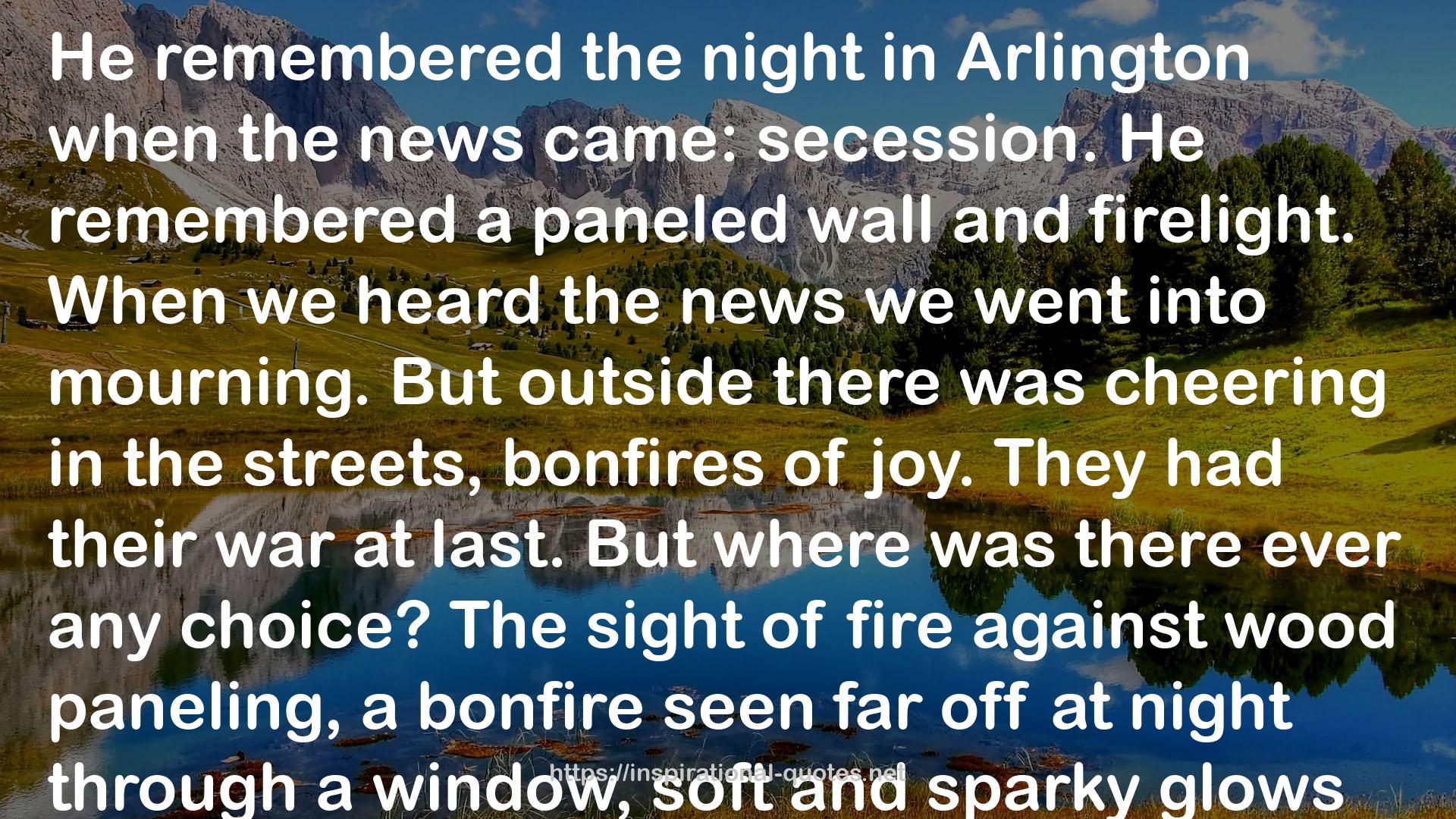" He remembered the night in Arlington when the news came: secession. He remembered a paneled wall and firelight. When we heard the news we went into mourning. But outside there was cheering in the streets, bonfires of joy. They had their war at last. But where was there ever any choice? The sight of fire against wood paneling, a bonfire seen far off at night through a window, soft and sparky glows always to remind him of that embedded night when he found that he had no choice. The war had come. He was a member of the army that would march against his home, his sons. He was not only to serve in it but actually to lead it, to make the plans and issue the orders to kill and burn and ruin. He could not do that. Each man would make his own decision, but Lee could not raise his hand against his own. And so what then? To stand by and watch, observer at the death? To do nothing? To wait until the war was over? And if so, from what vantage point and what distance? How far do you stand from the attack on your home, whatever the cause, so that you can bear it? It had nothing to do with causes; it was no longer a matter of vows.
When Virginia left the Union she bore his home away as surely as if she were a ship setting out to sea, and what was left behind on the shore was not his any more. So it was no cause and no country he fought for, no ideal and no justice. He fought for his people, for the children and the kin, and not even the land, because not even the land was worth the war, but the people were, wrong as they were, insane even as many of them were, they were his own, he belonged with his own. And so he took up arms willfully, knowingly, in perhaps the wrong cause against his own sacred oath and stood now upon alien ground he had once sworn to defend, sworn in honor, and he had arrived there really in the hands of God, without any choice at all; there had never been an alternative except to run away, and he could not do that. But Longstreet was right, of course: he had broken the vow. And he would pay. He knew that and accepted it. He had already paid. He closed his eyes. Dear God, let it end soon. "
― Michael Shaara , The Killer Angels (The Civil War Trilogy, #2)
